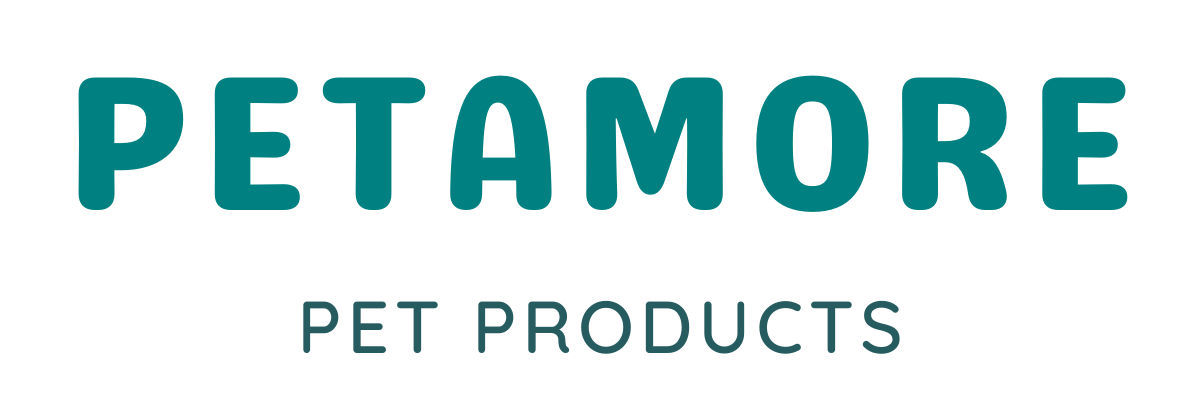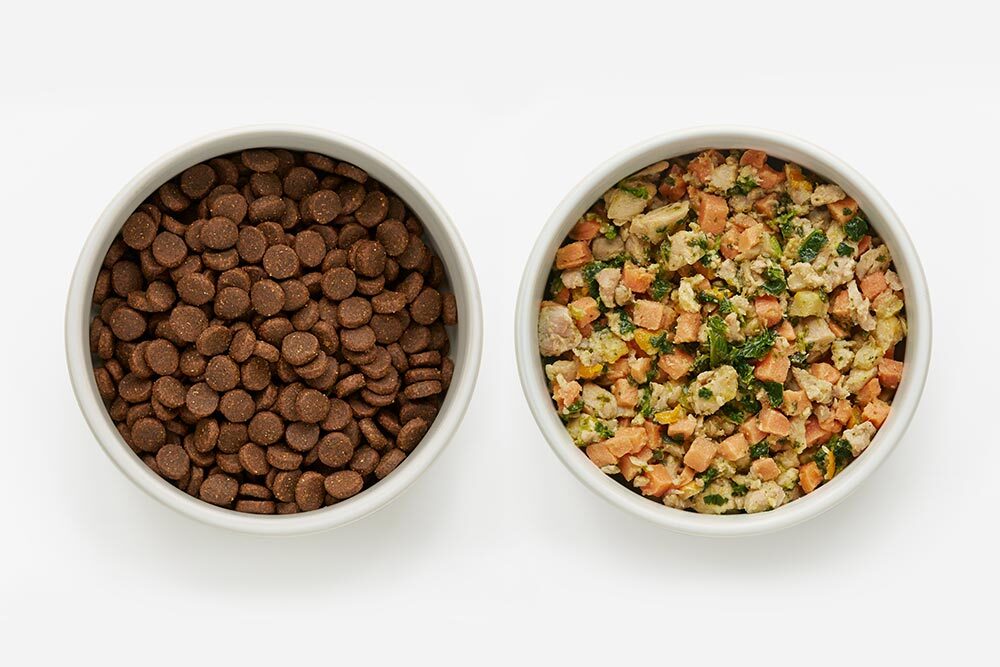
> Nutrient density: Fresh dog food generally contains a higher nutrient density than kibble. This is because fresh food is minimally processed, and therefore, the nutrients are not lost during cooking. Kibble, on the other hand, goes through a more extensive cooking process, which can destroy some of the nutrients in the ingredients.
> Better digestibility: Fresh dog food is easier for dogs to digest than kibble. This is because fresh food contains more moisture, which helps with digestion and promotes better bowel movements. Kibble, on the other hand, is generally low in moisture and can cause constipation or other digestive issues in some dogs.
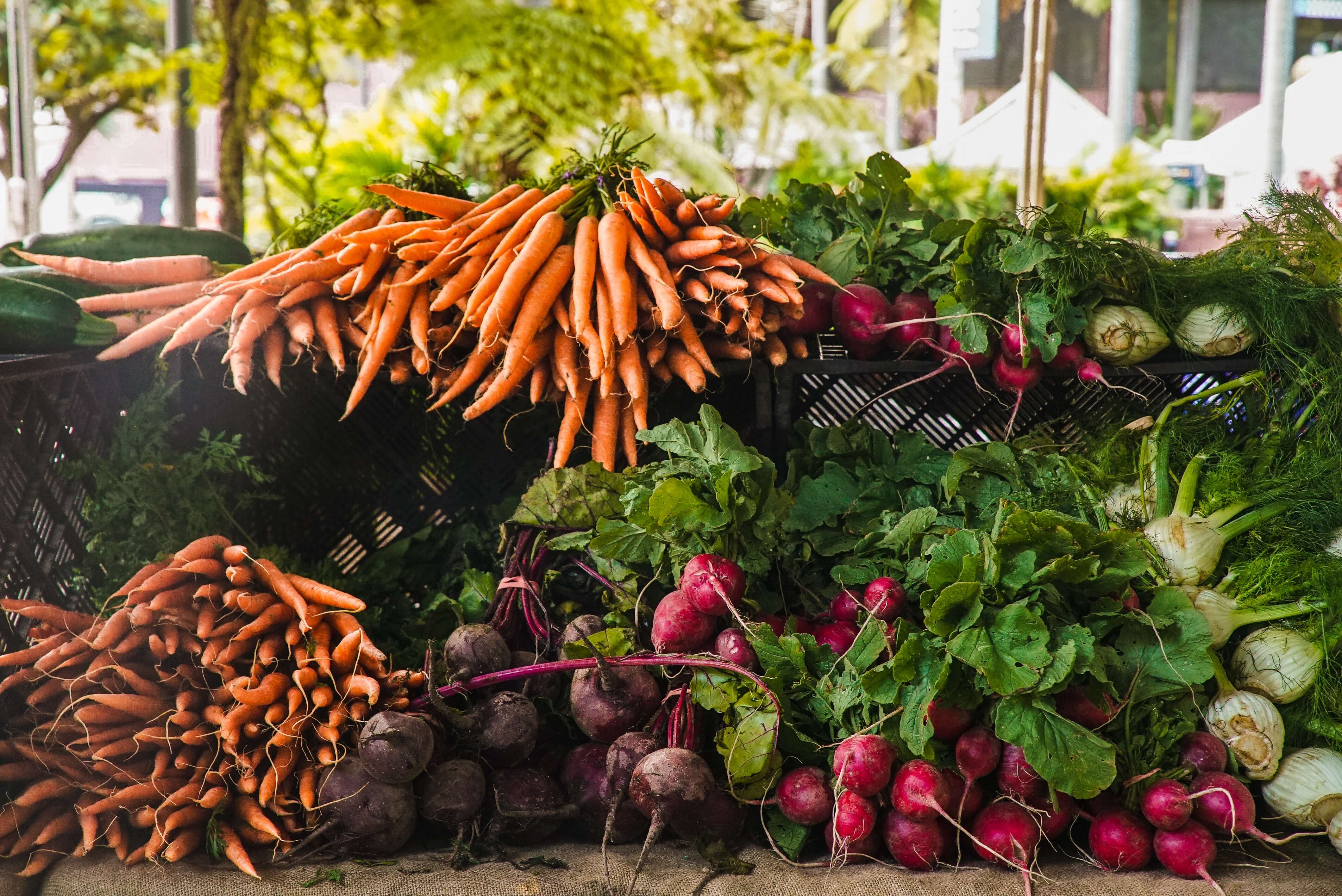
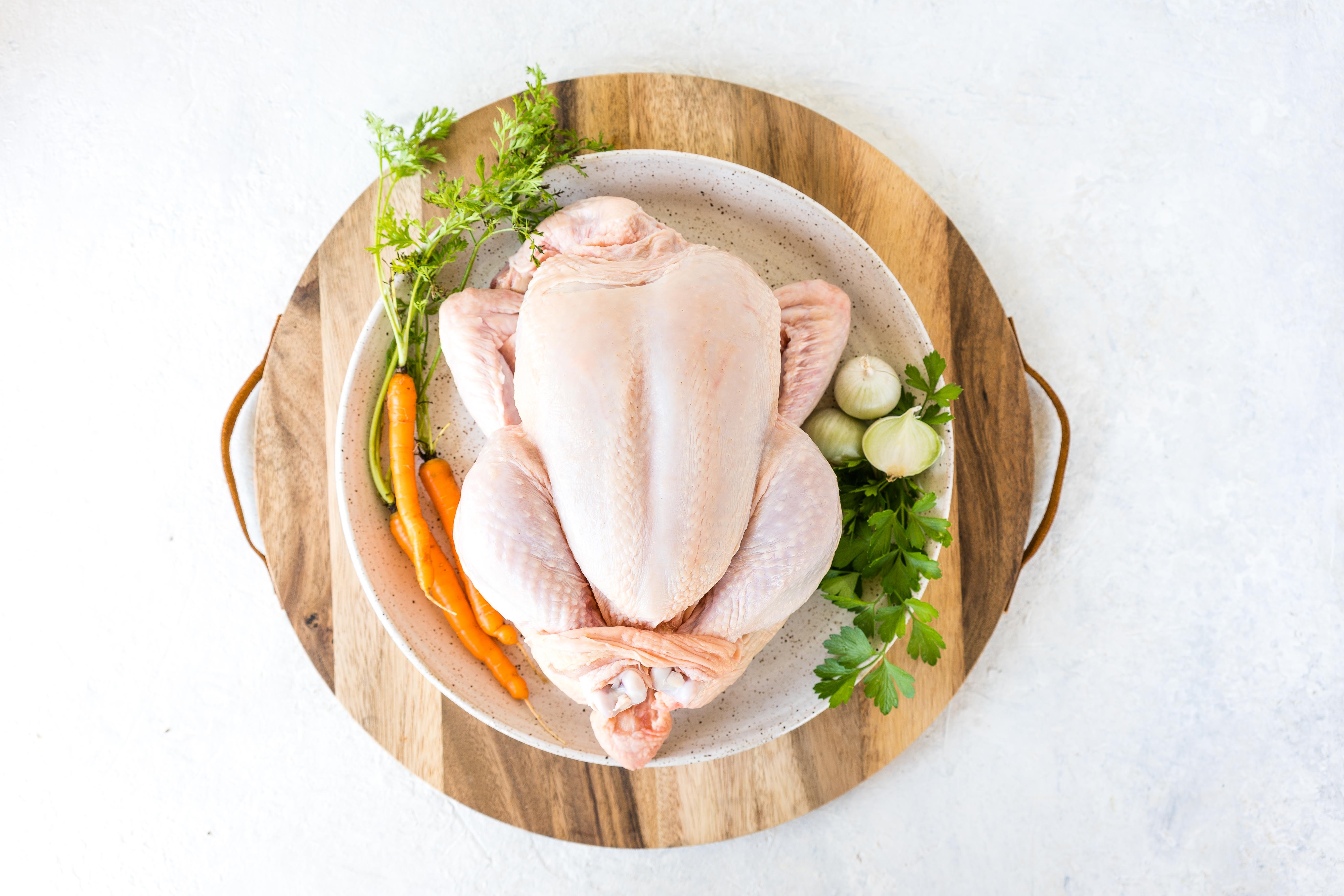
> Fewer additives and preservatives: Fresh dog food is made with whole food ingredients, which means there are fewer additives and preservatives than in kibble. Kibble often contains artificial colors, flavors, and preservatives, which can be harmful to your dog's health over time.
> Reduced risk of allergies: Some dogs may develop allergies to certain ingredients in kibble, such as grains or chicken. Fresh dog food can be tailored to your dog's specific dietary needs and allergies, reducing the risk of allergic reactions.
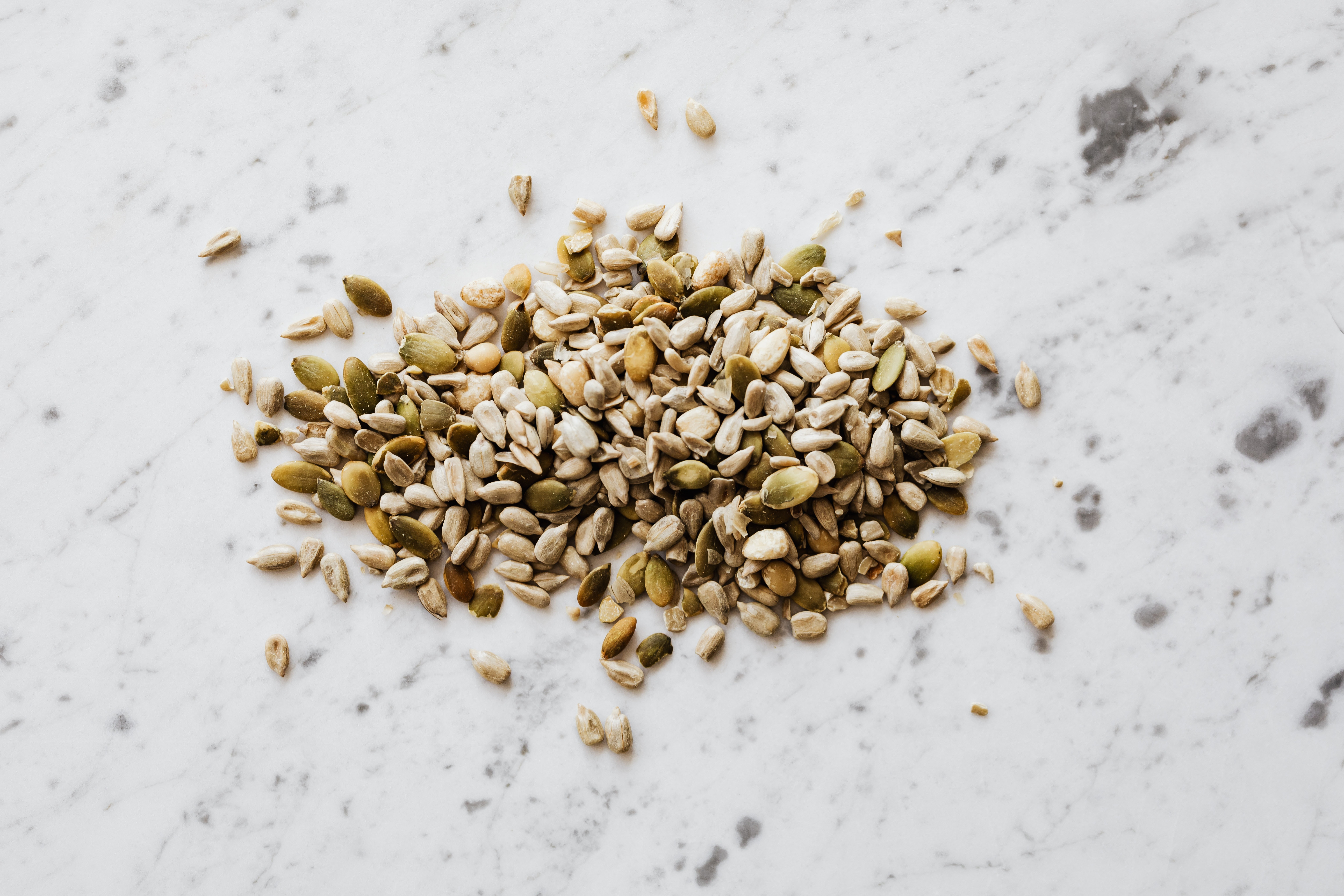
> More variety: Fresh dog food allows for more variety in your dog's diet. You can easily rotate different proteins and vegetables to provide your dog with a more balanced and diverse diet. Kibble, on the other hand, is generally made with the same ingredients every time.
> Improved overall health: Fresh dog food can promote better overall health in your dog. A healthy diet can help maintain a healthy weight, reduce the risk of chronic diseases, and improve energy levels.

However, it's important to note that fresh dog food can be more expensive and time-consuming to prepare than kibble. Additionally, not all fresh dog food options are created equal, and it's essential to choose a high-quality, balanced diet that meets your dog's specific needs. Consulting with a veterinarian or a canine nutritionist can help you make an informed decision about what type of diet is best for your furry friend.
